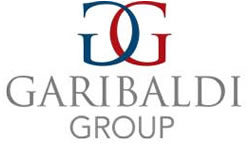Trustee's Report for THE HONORABLE HARLIN D. HALE, UNITED STATES BANKRUPTCY JUDGE
I. BACKGROUND
The Debtors consist of 13 nursing facilities and a management company. The Debtors operations commenced in May 2004. Due to the age of the facilities, substantial maintenance expenditures have been, and likely will be, required on a going forward basis. The census, or the number of residents, has been steadily declining.
The Debtors have been unable to meet current obligations throughout the pendancy of the bankruptcy proceeding as indicated by the Internal Revenue Service motion for allowance of payment of approximately $1.6 million of administrative payroll tax liabilities. As a result, on May 27, 2005, the Bankruptcy Court ordered the appointment of a trustee to determine if the Debtors could comply with Chapter 11 requirements or whether the case should be dismissed and, if the case should not be dismissed, to evaluate the likelihood for of reorganization.
II. Trustee's Actions
A. Discussion of Trustee�s Actions
When operating a business that provides nursing and long term care to sick and aging persons, my first and overriding concern was for the wellbeing of the patients residing in the facilities. Because I was appointed to evaluate the merits of dismissing this case, and I was instructed to report on my conclusions within 20 days of my appointment, I elected not to change banking and signature authorities so there would be no interruption or confusion concerning payment for care if a critical situation arose. As an alternative, I controlled the cash by forbidding any employee to release any check or wire transfer without my approval. I also collected the debit cards held by certain employees in the field and at corporate. I received full cooperation from the Debtors in that respect. I am not aware of any interruption of care to patients, or violation of any state statutes or regulation concerning provision of care since my appointment.
Second to my responsibilities to patients is fulfillment of fiduciary responsibilities to the Court and to creditors of the estate. To help me manage the business and complete this report, I retained Baker & McKenzie LLP as legal counsel, and Watershed Group to help me control cash expenditures, gather and analyze pertinent information, perform facility inspections, and review electronic information storage and retrieval assets and processes. With help from the Vinca Group, I was able to obtain information about demand in the marketplace. I had meaningful discussions with management concerning the continued losses occurring each month, the lack of compliance with IRS regulations concerning payment of withholding taxes, and the inability to comply with operating guidelines required by the Office of the US Trustee. I also spoke with management about possible solutions; including relinquishing operations to a third party, sources for repayment of delinquent withholding taxes and cost containment initiatives that are required at this time. I spoke to other business owners in the industry to obtain an understanding of the dynamics of a successful operation and the alternatives that may resolve this matter.
Third in my priority of responsibilities was to remain in compliance with regulatory requirements including IRS Regulations, Texas Department of Aging and Disability Services (DADS), guidelines required by the Office of the US Trustee for business operating under Bankruptcy protection and concerning my appointment as Chapter 11 Trustee. Payroll tax liabilities associated with the June 15, 2005 pay period were paid to the IRS on June 17, 2005. The Debtors have taken corrective action required by a Life Safety Code inspection performed by the Texas Department of Aging and Disability Services (DADS) on May 12, 2005 for Spring Season of River Oaks Inc. Mr. Bill Novick, General Counsel, is coordinating with (DADS) regarding the corrective action. The Debtors have not filed a Monthly Operating Report (MOR) for April. The April MOR is being prepared and will include a significant negative adjustment to the carrying value of accounts receivable. To the best of my knowledge, with the exception of the MOR, I have satisfied the US Trustees financial and disclosure requirements of selection to serve as Chapter 11 Trustee The Debtors have not escrowed or paid any fees for my services.
III. Requirments for Continued Administraion of the Estate
For continued administration of this estate in bankruptcy, the estate must have the ability to:
- Pay administrative claims at confirmation of the plan of reorganization or obtain an agreement to a structured payout of such claims over time.
- Generate a financial benefit to professionals and other administrative claimants at confirmation or according to an agreed structured payout of such claims over time.
- Generate and distribute financial benefits to unsecured creditors of the estates according to an agreement between the Debtors, the Court, and creditors.
- Emerge from bankruptcy a viable and profitable entity not likely to require bankruptcy protection in the future.
In order to meet these requirements we explored the following business strategies and opportunities:
- Ascertain the amount of receivables that are collectible and the time and expense of pursuing collection to meet tax related and non-tax related administrative claim obligations.
- To meet administrative claim obligations and provide distributions to creditors, begin gathering due diligence information to affect a sale transaction under Sec. 363 of the US Bankruptcy Code, which would transfer the management and operation of the facilities to a third party.
- Evaluate the Debtors� cash flow and the opportunities for increasing occupancy and revenue derived from the facilities, and potential steps to materially reduce costs, including but not limited to, staff reductions and salary and benefit reductions of employees. These steps are also necessary in the short term in order to get back into compliance with IRS regulations regarding payment of withholding taxes, test the viability of the business going forward, and to meet obligations under structured payout arrangements.
- The benefits of our work will be harbored by the Landlord and the Internal Revenue Service ("IRS") as the largest creditors of the estate. Accordingly, these parties were approached to determine their willingness to make concessions that would permit either a reorganization or sale of assets.
IV. Results of Effors to Meet Requirments for Continued Administration of the Estate
A. Collection of Accounts Receivable
The Debtors carry an accounts receivable balance of approximately $6 million on their books. Upon review and investigation of the collectibility of the accounts receivable reflected on the Monthly Operating Reports filed by the Debtors, I discovered that the accounts were generated by the prior operator of the facilities. It is unlikely that any cash will be generated from the receivables. The balances were simply carried forward in the accounting software the prior operator left behind and mistakenly included in the Debtors� financial records. Over $4 million of the receivables balance should be reserved and written off the books and records of the Debtors.
Revenue generated by the Debtors has been billed in a timely manner, collected and deposited in the Debtors� bank accounts and applied to the correct accounts in the Debtors� books and records.
B. Discussion With Internal Revenue Service
On Tuesday, the 14th of June I made the following verbal proposal to Kathryn Patterson, Special Assistant United States Attorney and legal representative to the Internal Revenue Service.
- Forebear exercising rights to payment of delinquent pre-petition and post petition withholding taxes for 90 days to allow the case to be administered.
- Subordinate administrative payroll tax claims to fees associated with attempting to formulate a plan for emerging from Bankruptcy.
- Allow payment of withholding tax claims over time from the profits generated by the reorganized Debtors.
On June 18th Kathryn Patterson conveyed to me that the IRS would not accept our proposal.
C. Discussion With the Landlord of the Nursing Facilities
On Tuesday, the 14th of June I made the following verbal proposal to John Bonds, Legal Counsel to Landlord of 12 of the Nursing Facilities:
- Defer payment of rental obligations for 90 days in order to permit the Debtors to break even on cash flow and attempt to either formulate a plan of reorganization or select an alternate operator of the Nursing Facilities.
- The ultimate satisfaction of deferred rental obligations will be included in the plan of reorganization and most likely be satisfied over time according to a structured payout.
On Friday June 18th, Mr. Bonds represented that his client would agree to a 50% reduction of monthly rent payments if I was committed to finding another operator of the Nursing facilities.
D. Prospects to Stabilize the Operations
Based upon a study performed by the Vinca Group, the prospects to increase revenue are limited by the excess capacity existing in the markets that the Debtors operate. Therefore, the Debtors need to be very diligent in managing expenses.
Based upon my review of Income Statements for each facility for the months of November 2004 through March 2005 I noticed the following expense trends:
- Payroll expenses approximated 67% of revenue;
- Rent expense approximated thirty to forty thousand dollars per facility per month; and
- Most of the facilities are losing money on a monthly basis.
As a result of my review I discussed with management the need to implement payroll cost reductions and the Debtors have formally begun implementing salary cuts and staffing reductions.
E. Prospects for a Section 363 Sale Transaction
Based upon discussion with numerous industry sources it is highly unlikely that the estate will generate additional money from transferring the management of the facilities to a third party. The reimbursement rates that exist in this region do not create value in patient care.
V. Conclusions Reached
For the reasons explained above, I recommend dismissal of the cases.











